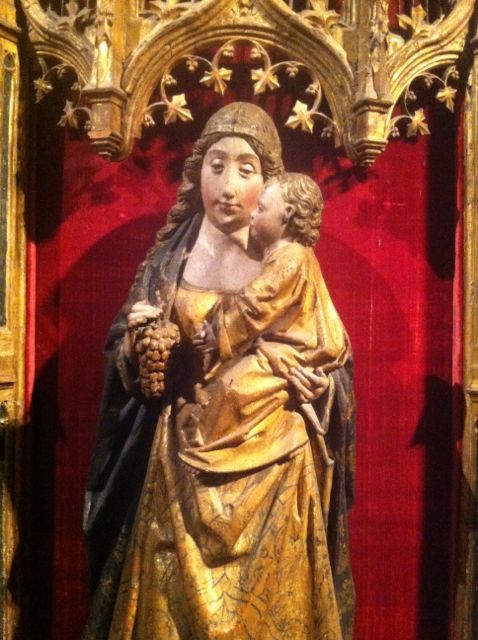
In this medieval statue from a French cathedral, Jesus is not looking out at the viewer nor is he looking at Mary. He seems to be looking past her face. And Mary holds grapes – an ancient symbol of the fruit which attention to the spiritual life makes possible, as well as a symbol of the eucharist and of sacrifice.
What must it have been like for Mary to be participating in this unfolding cosmic drama? What did she understand? She sings the maginficat when the angel asks her to bear God’s son into human life; and yet there is this clear awareness from the text that she knows that she plays a role both for God and for her people.
These last few days the cathedral chapter and Dean was secluded on a retreat at the mountain lodges of Cathedral Ridge high in the smokey mountains. Mornings were cold and crisp. Food was luscious and warm. Kind laughter abounded. A fire warmed the room and we too wondered in what ways we were a part of the drama which God is unfolding. God is either omniscient or impotent. And if God knows all things and allows all things and guides all things then, like Mary, we too have a “yes” to speak. We too respond daily to the invitation which nature is granted with each sunrise. And we too must be aware that our “yes” will be commingling the agony and the glory of being alive.
Like Jesus, we have fruit to bring to the table of the eucharist. We too bring our hopes and fears and longings. And we too say yes to the participation and accept what that will bring. Or we say no and will never know what things God could have made possible for us and for others through us.

